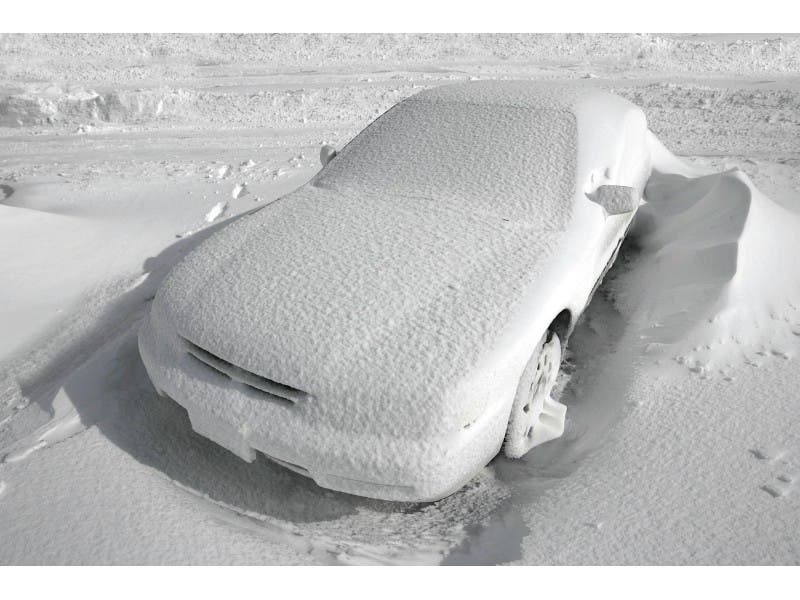Home & Garden
Here's Why You Shouldn't Idle Your Car on Cold Mornings
Despite common belief, your car doesn't need time to warm up. Check below to see how the myth could be hurting you, and your wallet.

Written by Kasandra Brabaw. Orginal article here.
Across the U.S., people with remote car starters sit in their kitchens sipping coffee while their car warms up in the driveway.
It’s a commonly-held belief that engines need to warm up before you hop in the car on days when the temperature drops below freezing. In fact, a 2009 study from Vanderbilt University found that most Americans think a car should idle for at least five minutes before its driven.
Find out what's happening in West Des Moineswith free, real-time updates from Patch.
But that commonly-held belief is wrong. And here’s why.
The misconception has roots in truth as cars built prior to the 1980s did need time to warm up. Starting in the 1980s, automakers switched out carburetors for modern fuel injection systems, which regulate the ratio of air to fuel that reaches your engine. The carburetor needed warm up time in order to get the right mix of air to fuel, but fuel injection systems rely on oxygen sensors for that task.
Find out what's happening in West Des Moineswith free, real-time updates from Patch.
Therefore, any car built post-1990 (the last car sold with a carburetor in the U.S. was the 1990 Subaru Justy) only needs about 30 seconds to reach ready-to-drive conditions. After that 30 seconds, an ease out of your driveway and onto the streets will warm up both the engine and the interior faster while the car is driven than it would idling, according to the U.S. Department of Energy.
Unnecessarily idling your car also impacts both your health and your wallet.
Health Concerns
Every 10 minutes your car runs, it releases one pound of carbon dioxide, according to the Environmental Defense Fund. This greenhouse gas is the biggest contributor to global warming.
Breathing in exhaust is also bad for your health, especially for children, the elderly and anyone with asthma. Breathing the hydrocarbons in car exhaust has been linked toincreased rates of cancer, heart and lung disease, asthma and allergies, according to the EDF.
An idling car also releases carbon monoxide which can be fatal if too much of the gas is inhaled. Never let your car run in an enclosed space such as a garage.
Wasted Money
Cold weather will affect your fuel economy no matter what you do, but letting your car idle only increases the amount of gas wasted. Even with the recent plummet in gas prices, wasted gas means wasted money.
A study from Natural Resources Canada showed that idling a car for five minutes increased fuel consumption by 7 to 14 percent and a 10-minute warm-up raised that number to 12 to 19 percent.
So instead of hitting the “start engine” button before you’ve left the house, start your vehicle the old fashioned way. Your body and wallet will thank you.
Damaged Cars
Idling also causes problems with your car, once again hitting your wallet where it hurts. According to both the Hinkle Charitable Foundation and the EDF, idling for an extended period of time causes problems with the engine. The HCF says an extended idle “forces it to operate in a very inefficient and gasoline-rich mode that, over time, can degrade the engine’s performance and reduce mileage.”
Image via Shutterstock
Get more local news delivered straight to your inbox. Sign up for free Patch newsletters and alerts.